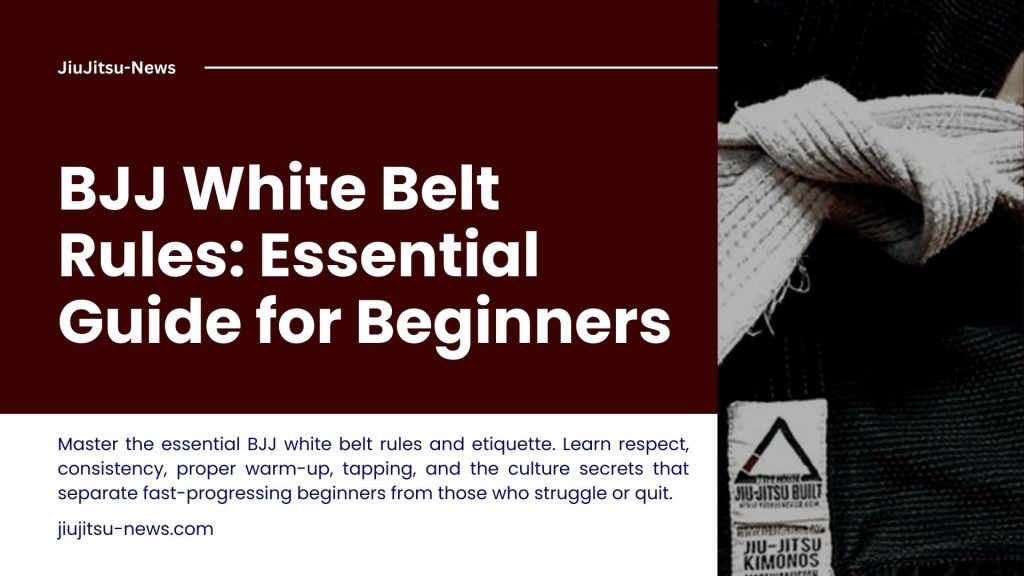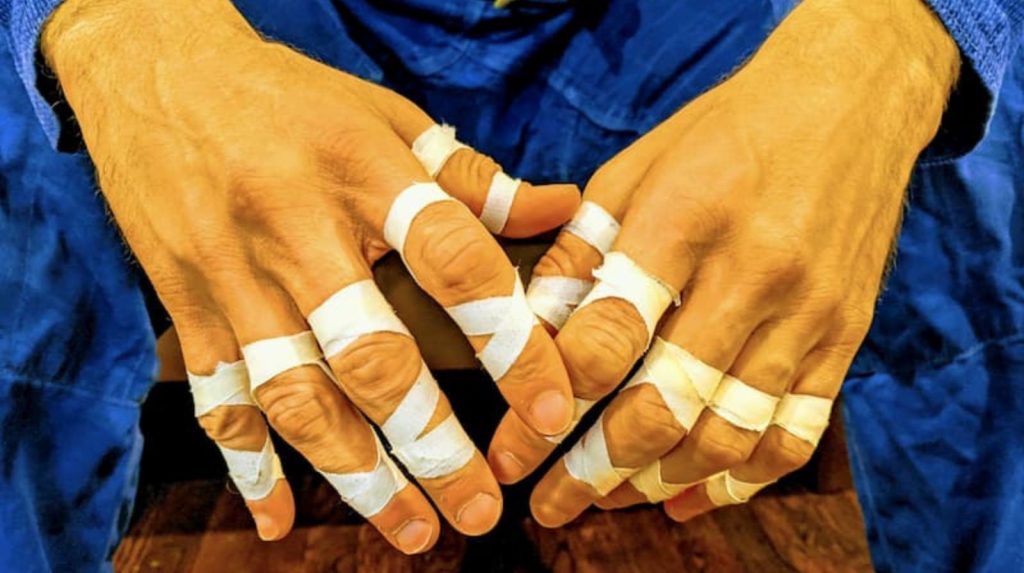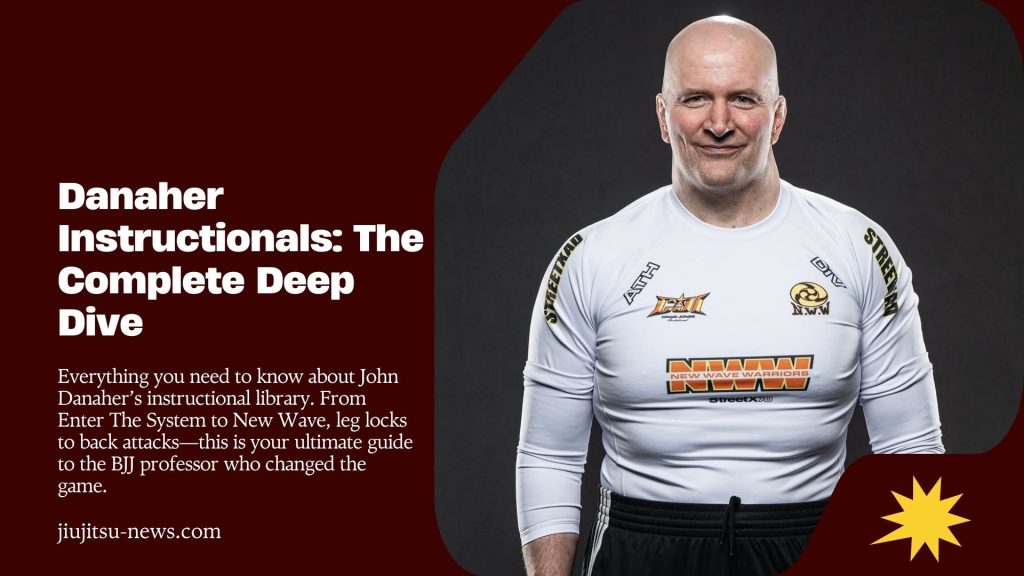Alright, you’ve been rolling for a while now, and you’re considering stepping up your game and competing in a Brazilian Jiu-Jitsu tournament.
I’ve been there too, and let me tell you, competing in BJJ is a whole different beast than just showing up to class a few times a week.
It’s awesome, but it takes some serious planning if you want to dominate.
So, a solid training plan is everything. You can’t just wing it and expect to crush it on competition day. So, let’s talk about how to get ready for your tournament the right way.
Your BJJ Competition Training Plan
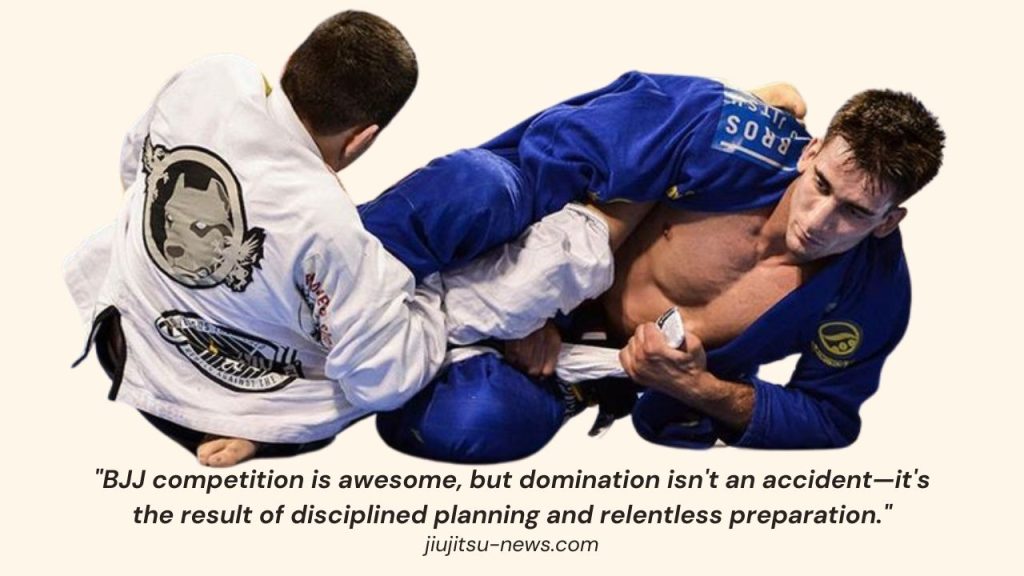
Here’s a breakdown of what your training should look like in the seven weeks before the tournament.
This plan is gonna help you peak at just the right time without overdoing it.
| Weeks before competition | Strategy | Training Frequency |
|---|---|---|
| 7th Week | Start tapering and peaking | 5-6 times a week |
| 6th Week | Focus on peaking and General Physical Preparedness (GPP) | 4-5 times a week |
| 5th Week | Reduce volume and intensity, shorter sessions | 3-4 times a week |
| 3rd & 4th Week | Keep strength & conditioning light (20 mins max) | 3-4 times a week |
| 2nd Week | Review techniques, lighter training | 2 off-mat sessions (strength conditioning) |
| Last Week | Full rest, focus on sleep | N/A |
7 Weeks Out: Start Tapering & Peaking
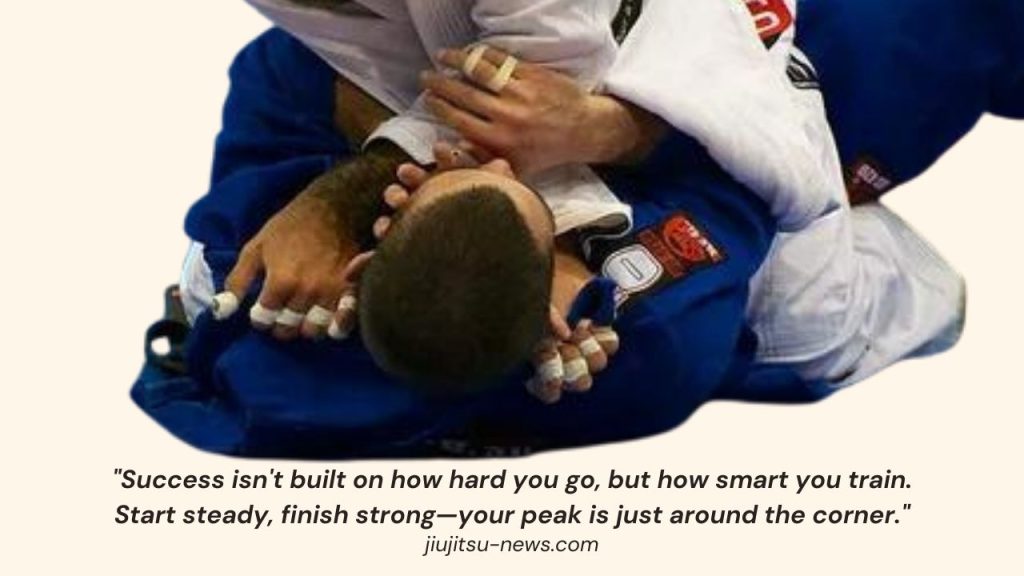
Seven weeks? You’ve got time. But that doesn’t mean you should go full throttle.
This is when you want to start “peaking”—basically, training in a way that maximizes your performance for competition day.
The biggest mistake people make? They go too hard and end up wrecking their bodies right before the tournament.
Trust me, you don’t want to gas out halfway through your first match.
6 Weeks Out: GPP and Peaking
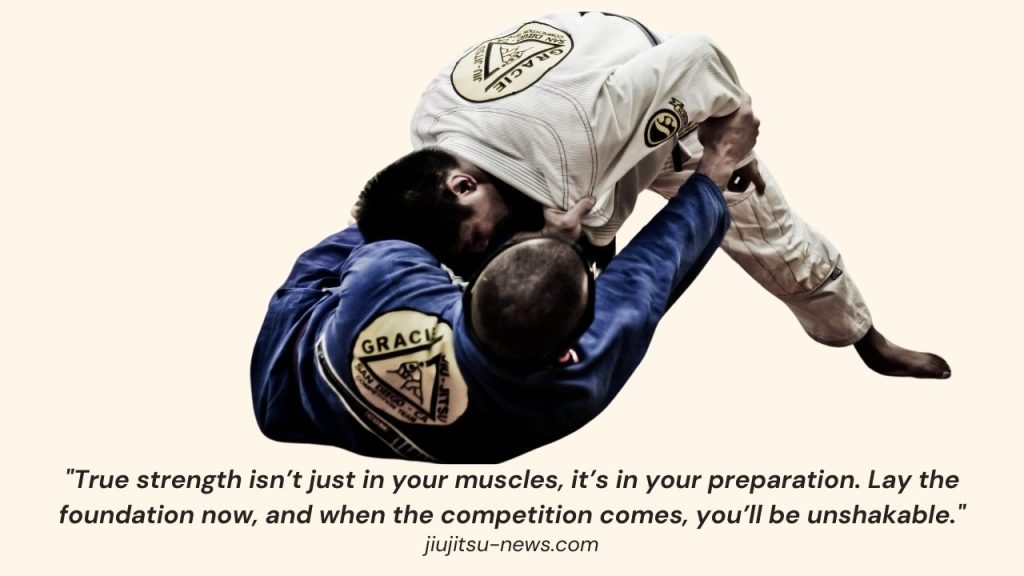
At six weeks, you’re still focusing on peaking, but don’t go too crazy.
The main thing here is your General Physical Preparedness (GPP).
Think of this as your overall strength and conditioning. You want to be in top shape, but not over-trained.
BJJ isn’t like other sports where you have an off-season; you’ve gotta be ready all year.
That’s why it’s so important to hit your peak at the right time—especially for the big events like IBJJF Worlds or ADCC.
5 Weeks Out: Less is More
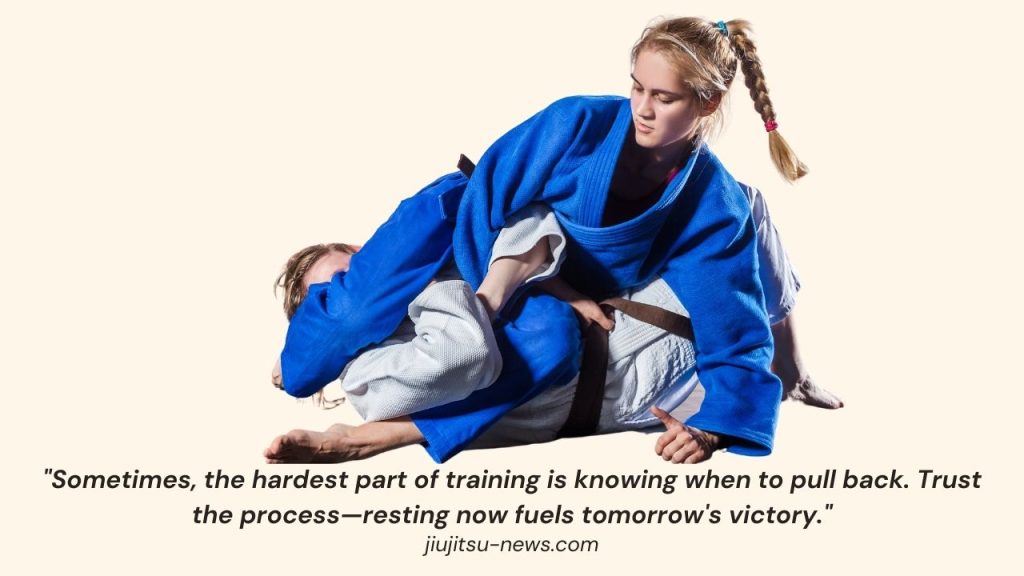
Alright, five weeks out. This is where you start dialing it back.
Cut down on the volume and intensity of your training.
Don’t push yourself too hard, but keep the intensity high when you do train.
Shorter, sharper sessions are the way to go here.
Also, don’t train every day. Three to four times a week is plenty. You want to arrive at the tournament feeling fresh, not fried.
3rd & 4th Weeks: Light Strength & Conditioning
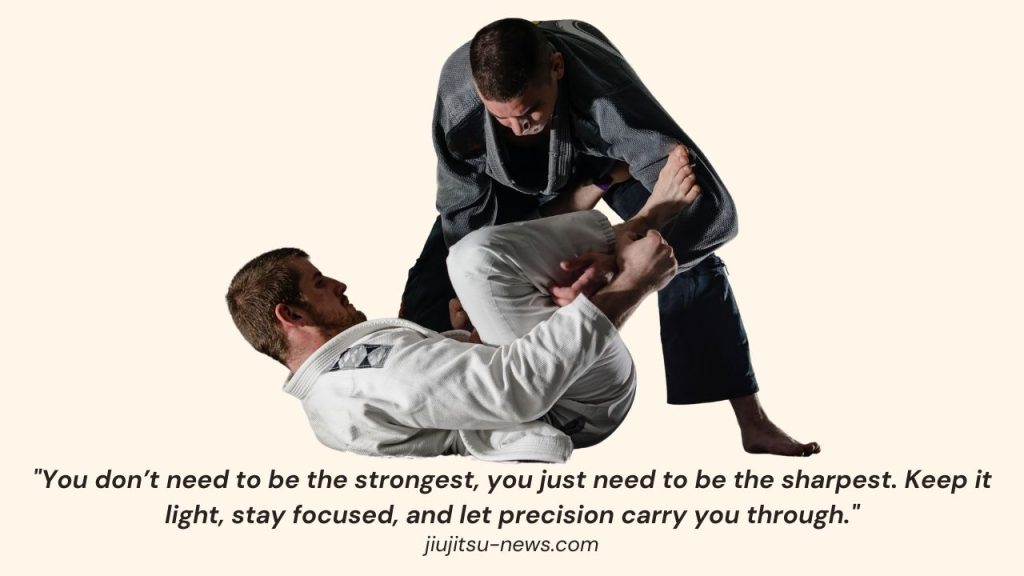
Weeks three and four are all about keeping things light.
Your strength and conditioning sessions should only be about 15-20 minutes, twice a week.
Don’t go beast mode in the gym now.
This is the time for light rolling and drilling. Keep your body sharp, but don’t overdo it.
2 Weeks Out: Review & Refine
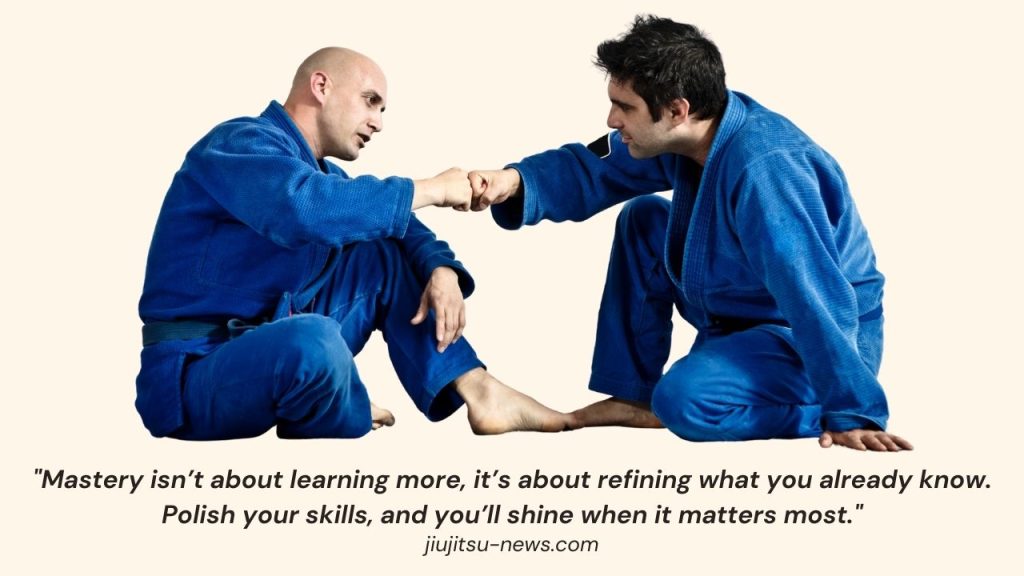
Two weeks left! Now’s not the time to learn anything new.
Focus on reviewing the techniques you’ve been working on.
Keep the training light and easy—just enough to stay sharp.
I usually do two off-mat sessions focused on strength, with some light drilling and rolling mixed in.
Trust me, you don’t need to reinvent the wheel here. Just sharpen your tools.
Final Week: Rest, Rest, Rest
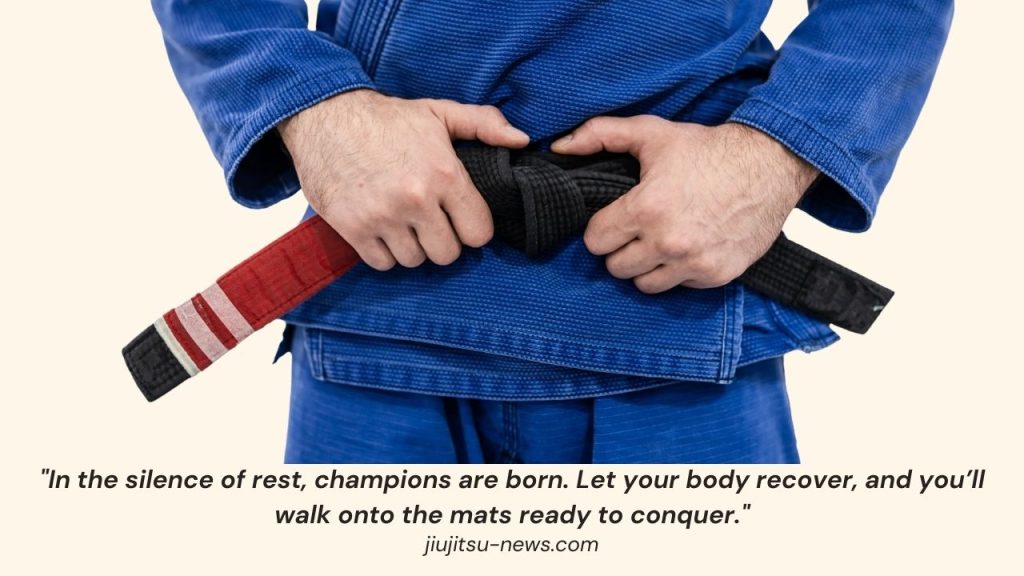
The last week before the tournament is all about rest.
Most comps are on Saturdays, so Tuesday should be your last day of training.
After that? Chill. Seriously. Let your body heal and recover.
You don’t want to risk an injury right before the big day.
I’ve seen way too many people train too hard in the final days and end up hurting themselves. Don’t be that person.
The Role of Diet and Sleep

Now, let’s not forget about diet and sleep.
You can train as hard as you want, but if your diet and sleep are trash, you’re not gonna perform at your best.
Make sure you’re eating clean and getting enough nutrients to fuel your training.
And sleep? Non-negotiable. Your body needs time to recover. Get those 8 hours every night, especially in the final week.
Avoid the Shortcuts
It’s normal to feel stressed or nervous leading up to a big competition.
Some people might even think about shortcuts like PEDs (performance-enhancing drugs), but trust me, that’s a slippery slope.
Not only is it dangerous, but you can also lose everything you’ve worked for if you get caught.
Stay clean, stay focused, and have faith in your preparation.
Takeaways
A good training plan can be the difference between standing on the podium or sitting in the crowd.
Stick to the plan, focus on peaking at the right time, and make sure you’re getting enough rest in the final week.
If you do that, you’ll walk into your competition feeling confident and ready to dominate.

